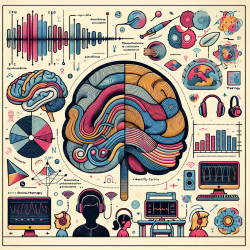Improving Skills: Understanding Poor Academic Performance and Benign Epilepsy with Centro-Temporal Spikes

Understanding the relationship between poor academic performance and Benign Epilepsy with Centro-Temporal Spikes (BECTS) is crucial for practitioners working with students who have this condition. A recent review published in Behavioral Sciences sheds light on this complex interaction and offers insights into how educators and therapists can better support affected students.BECTS, commonly known as Rolandic epilepsy, typically affects children during their early school years. Despite being labeled "benign," this type of epilepsy can significantly impact academic performance, particularly in reading, writing, and math. Here are key takeaways from the research and practical steps for practitioners:
Key Findings from the Research
- Early Onset and Persistence: The research highlights that an early onset of BECTS and prolonged seizures are strongly correlated with poor school performance.
- Pharmacological Control: Effective management of seizures through medication can improve academic outcomes, underscoring the importance of timely medical intervention.
- Neuropsychological Aspects: BECTS is associated with a higher predisposition to other neuropsychiatric conditions, and the stigma surrounding epilepsy can further exacerbate academic challenges.
Practical Steps for Practitioners
- Early Identification and Intervention: Screen children with BECTS for learning disorders early. Early intervention, especially in reading, can lead to significant improvements.
- Collaborative Approach: Work closely with neurologists, psychologists, and speech therapists to create a comprehensive support plan for the student.
- Customized Educational Strategies: Implement personalized teaching methods that cater to the student's unique learning needs. Use tools like special fonts, extended time for assignments, and computer-assisted note-taking.
- Emotional and Social Support: Address the emotional and social aspects of BECTS by fostering an inclusive classroom environment and providing emotional support to boost self-esteem and self-efficacy.
Encouraging Further Research
Given the complex interplay between epilepsy and academic performance, continued research is essential. Practitioners are encouraged to stay updated with the latest findings and consider participating in studies to contribute to the growing body of knowledge in this field.To read the original research paper, please follow this link:
Poor School Academic Performance and Benign Epilepsy with Centro-Temporal Spikes.
Citation: Vetri, L., Pepi, A., Alesi, M., Maltese, A., Scifo, L., Roccella, M., Quatrosi, G., & Elia, M. (2023). Poor School Academic Performance and Benign Epilepsy with Centro-Temporal Spikes. Behavioral Sciences, 13(2), 106. https://doi.org/10.3390/bs13020106










